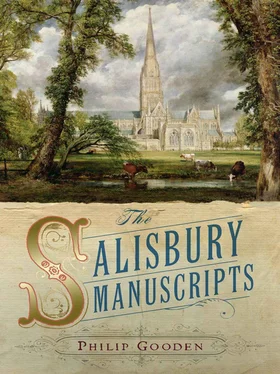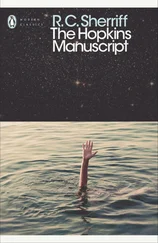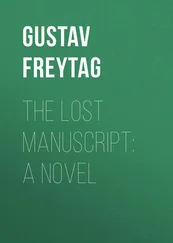Philip Gooden - The Salisbury Manuscript
Здесь есть возможность читать онлайн «Philip Gooden - The Salisbury Manuscript» весь текст электронной книги совершенно бесплатно (целиком полную версию без сокращений). В некоторых случаях можно слушать аудио, скачать через торрент в формате fb2 и присутствует краткое содержание. Год выпуска: 2009, Издательство: Soho Press, Жанр: Исторический детектив, на английском языке. Описание произведения, (предисловие) а так же отзывы посетителей доступны на портале библиотеки ЛибКат.
- Название:The Salisbury Manuscript
- Автор:
- Издательство:Soho Press
- Жанр:
- Год:2009
- ISBN:нет данных
- Рейтинг книги:3 / 5. Голосов: 1
-
Избранное:Добавить в избранное
- Отзывы:
-
Ваша оценка:
- 60
- 1
- 2
- 3
- 4
- 5
The Salisbury Manuscript: краткое содержание, описание и аннотация
Предлагаем к чтению аннотацию, описание, краткое содержание или предисловие (зависит от того, что написал сам автор книги «The Salisbury Manuscript»). Если вы не нашли необходимую информацию о книге — напишите в комментариях, мы постараемся отыскать её.
The Salisbury Manuscript — читать онлайн бесплатно полную книгу (весь текст) целиком
Ниже представлен текст книги, разбитый по страницам. Система сохранения места последней прочитанной страницы, позволяет с удобством читать онлайн бесплатно книгу «The Salisbury Manuscript», без необходимости каждый раз заново искать на чём Вы остановились. Поставьте закладку, и сможете в любой момент перейти на страницу, на которой закончили чтение.
Интервал:
Закладка:
It didn’t seem very likely. While Helen slid open the drawers in the chest to see nothing more than a few items of clothing, clean and neatly folded, Tom got down on hands and knees and peered under the bed. Peered at a chamber-pot which was decorated with a frieze of pink roses. It was the same pattern as the china ware on the wash-stand. Tom detected the neat and womanly taste of Mrs Banks.
The only item of furniture still to be examined was the cabinet. It had a triple function, as a writing desk, book-case and medicine chest. There was shallow ledge for writing on, a shelf immediately above it which contained a few books and on top of the shelf a closed case in which to store potions and pills for when the occupant of the bedroom was sick.
Tom looked at the books. He was already aware that there were hidden depths to Andrew North but he was surprised to see volumes of poetry, including Palgrave’s Treasury , as well as A Children’s Guide to Classical Myths and histories of Salisbury and Wiltshire. He tugged at the handle on the miniature double doors of the medicine chest but they wouldn’t budge.
‘It’s locked.’
‘Then try this,’ said Helen, holding up another object which she’d retrieved from her bag. It was a small, dull-looking key.
She couldn’t help smiling while she waited for Tom to ask the inevitable question. Which he did.
‘You remember when they brought the body out of that chamber in the hillside,’ said Helen, ‘and the policemen were wrapping it up in canvas and I was standing close by — ’
‘Too close, I thought,’ said Tom, ‘but I told myself it was just your way. After all, you have a duty to be curious about everything, Helen, since you intend to write a sensation novel.’
Helen drew herself up and said, ‘Curiosity brings its own rewards, sometimes. I looked down and saw this key on the ground. It must have fallen out of Mr North’s pocket as the constables were manhandling his body.’
‘You should have given it to the Inspector.’
‘But the key might not have been the dead man’s. It could have belonged to anyone who chanced to have been wandering over the hillside with a hole in his trouser pocket. Anyway, what does it matter, Thomas?’
‘Why didn’t you tell me you’d found a key?’
‘How was I to know exactly when we might need a key? Maybe we weren’t going to need one at all. I was waiting for the right moment, the appropriate moment, to produce it, just as I waited for the right moment to return her brother’s flask to Mrs Banks. Now are you going to see whether this key will open that chest, or shall I?’
Tom took the key and inserted it in the lock in the chest. It worked, of course, as he had somehow known it would. He felt the thrill of discovery when the key turned. There were no medicine bottles or pill-boxes inside. Instead four cardboard boxes were neatly arranged. Helen took out the topmost one, which was about the size of a shoe-box. On it was a label, half torn off. In ornamental capitals was printed, Adler’s Ointment: Suitable for all Types of . While Tom was wondering about the application of Adler’s Ointment, Helen unfastened the lid. Inside was a mass of items individually wrapped in brown paper. She placed the box on the ledge of the cabinet. They unfolded a couple of the items. Then all of them, arraying them on the ledge. The result was a jumble of objects, made of stone and metal and baked earth.
Helen looked a bit disappointed but Tom thought of how, when he was a child, he’d collected bric-a-brac and stored it away in just this fashion, not wrapped up in brown paper but kept in secret in a cigar box belonging to his dead father: a broken bit of clay pipe, an empty snail shell, an old and tarnished coin.
But he was also reminded of the more formal display in the glass cases in Felix Slater’s study, for here too in Andrew North’s collection were flint arrow-heads and bronze buckles and decorative pins, together with tiny shards of pottery. It seemed to be conclusive proof that the sexton, encouraged perhaps by Slater, had become possessed by the desire to dig up the past and hoard the little treasures which he had found. But this was no trove. The items here didn’t look as though they could be worth much more than the objects in Tom’s childhood box, even assuming anyone had been willing to purchase them.
While he was picking over the contents of the box, Helen had reached for a black-bound book which was also inside the cabinet.
‘What’s that?’
‘A kind of diary,’ she said after a moment. ‘At least it has dates and brief entries and some sketches too. The diary of a dead sexton. It is the same writing as on the note which the Inspector showed us.’
Tom peered over her shoulder as she riffled through a few pages. As Helen had said, there were dates followed by a couple of handwritten lines or a short paragraph, sometimes with a drawing or two.
‘It seems to be more of a record or a catalogue of what he’d found, and where and when,’ said Tom, pointing at an entry and reading aloud, ‘“8th March — Glyde Field — 4 arrow-heads and a copper pin. 29th March — Saddler’s Farm pasture — stone axe-head and bronze buckle.”’
Underneath or alongside some of the comments were simple impressions of the objects. Tom imagined Andrew North, sitting up here in the solitude of his room, and sketching the little artefacts as a way of confirming his ownership of them before he deposited them in the cardboard boxes. As well as pictures of the buckles and flint-heads there were diagrams of squares and circles with shaded areas and crosses, occasionally with initials (G.F., T.B.) next to them. It took Tom and Helen a minute to work out that these were plans of the fields and mounds where Andrew North had made his discoveries or where he hoped to make them.
‘Isn’t it extraordinary, Tom? Not this diary or whatever you want to call it, but that someone can go out into the countryside and just dig up long-lost items wherever he plants a spade.’
‘I dare say there was some research involved. You’d have to know where to dig in the first place. And there was something which Felix Slater said to me when we met. He said that people have lived on the plain for centuries. There are signs of the past everywhere if you know where to look. It must be true but maybe not all the time. See here: “9th April — FS and I to Hobb’s ditch — came back empty-handed.”’
‘FS is surely Felix Slater.’
‘I thought Mrs Banks said that her brother and the Canon fell out. Yet he is still going off exploring with him.’
‘These entries refer to last year, Tom. Here is more writing with dates, during October and November but with nothing at all for December and then beginning again this year in, let me see, February. Oh! Hear this: “Buried dog at request of FS today — ground hard — She fussed about and rolled her eyes — FS and I had words.” Who is this “she”?’
‘Mrs Slater. Her pet dog died and was buried in the garden,’ said Tom, easily able to imagine Amelia Slater fussing and rolling her eyes. ‘I have seen the spot by the river. Perhaps this was when the bad feeling started between North and Slater.’
‘The last dated entry is for 3rd October this year, and then just blank pages.’
There was a silence while they both contemplated the significance of those blank pages.
‘When did Mrs Banks say that her brother found the bracelet?’
‘In the spring, wasn’t it?’
Helen turned a few pages back and almost straightaway found the place. She read aloud: ‘“Eureka! — I do better by myself — out by the old road and south of the Martins house — golden bracelet.” He was so excited or distracted that he forgot to put the date but the previous entry is early April.’
Читать дальшеИнтервал:
Закладка:
Похожие книги на «The Salisbury Manuscript»
Представляем Вашему вниманию похожие книги на «The Salisbury Manuscript» списком для выбора. Мы отобрали схожую по названию и смыслу литературу в надежде предоставить читателям больше вариантов отыскать новые, интересные, ещё непрочитанные произведения.
Обсуждение, отзывы о книге «The Salisbury Manuscript» и просто собственные мнения читателей. Оставьте ваши комментарии, напишите, что Вы думаете о произведении, его смысле или главных героях. Укажите что конкретно понравилось, а что нет, и почему Вы так считаете.












